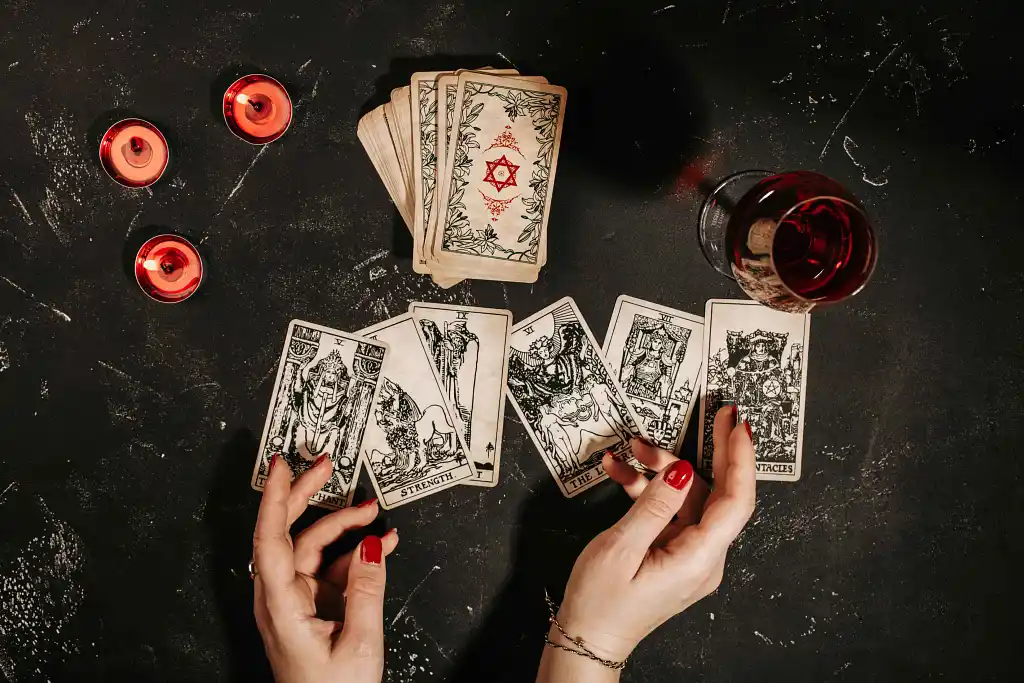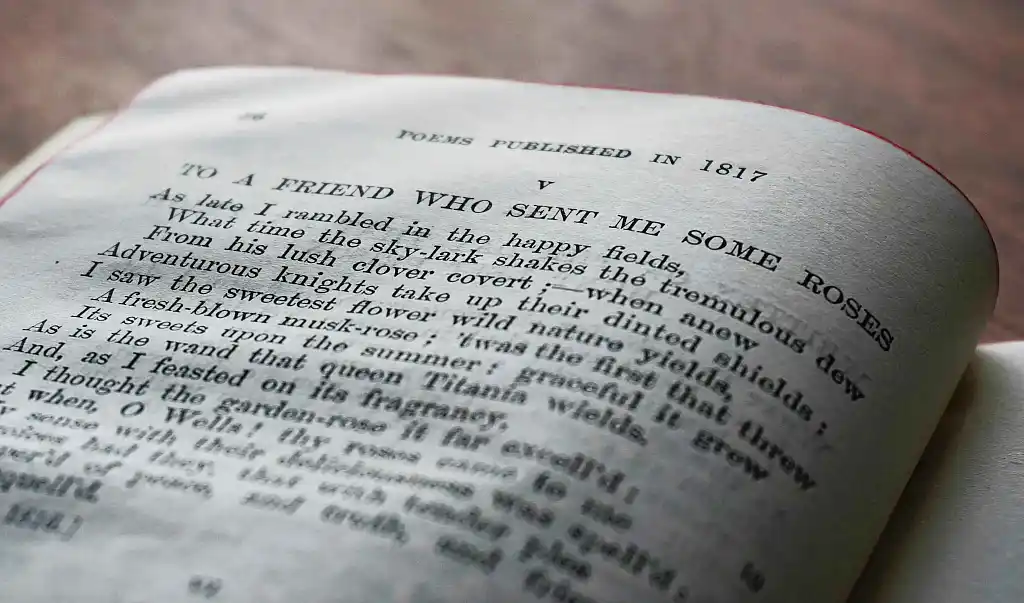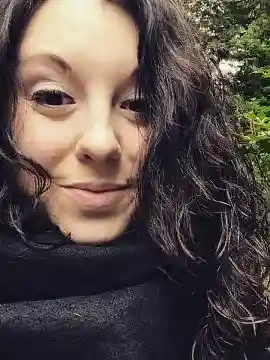Poetry is a bit like the mythological. Its basis is often in reality, but there’s this sleight of hand that happens: this tiny bit of magic that sneaks in and transforms the mundane into the spiritual.
Because of this, it’s hard to pinpoint just one definition of poetry, or what makes a poem “good.” After all, the form itself exists in the in-between, the liminal, all those thorny spaces of the felt and unfelt. It’s one of the reasons reading poetry is so healing: it puts words to the indescribable.
But what do you do once you’re staring down the draft, lost in the labyrinth, running circles around form and meter? Where do you start? How do you know when it’s done? And will the constant tinkering and removal (and subsequent addition) of that single comma matter in the end? While there are no hard-and-fast rules when it comes to editing a poem, I have a few practices that might help you on your journey.

1. Read the entire piece out loud
When I’m first drafting or freewriting, I’m not overly concerned with how a poem sounds. Instead, I focus on the image or feeling I want to convey.
But once I have that foundation, I start playing with diction and syntax. While doing that, I’m almost always reading the piece to myself — and when I think it’s done, the first thing I do is record myself reading it out loud. I started doing this a couple of years ago, and I’ve found it gives me the distance I need to really hear the words, allowing me to critique them as a reader rather than a writer. It’s become my dissociative loophole.
Here, I’m listening for awkward phrasing, clichés, natural breathing points, and repetitions in sound. I’m also listening to the areas where I’m trying too hard and the places where I didn’t try hard enough. This means taking into consideration showing vs. telling, overused or highfalutin language, and imagery (or the lack thereof).
I’ll then listen to the recording a few times and take notes on what I like, what still needs work, and all those areas in between that might be okay but could be better. This is both the first and last part of my editorial process.
2. Consider white space
Poetry is funny because, while it’s a form where every single word matters, what equally matters is what’s not there. White space can be a writer’s best friend, because what better way to literally show absence or loss than by using absence on the page?
When I first started writing poetry, this wasn’t something I played with because, truthfully, it felt intimidating. But then I started looking at it as a way to hold space for emotions like grief, confusion, and anger, and I saw its potential for inserting the meditative into the line.
White space can be your comic relief; a way to dispel or insert tension; or it can be a prayer, a moment of silence. Make no mistake, though — including it will add emphasis, and that emphasis, depending on what you want your piece to do, can take things to the next level.
3. Define your line

It might seem like knowing where to break each line is instinctual, and sometimes it is — but it’s also worth asking yourself why here? as you edit your poem, word by word.
Incidentally, when you break your line, you also have to consider the white space you’re leaving behind. Why end on that word? What kind of pause does it give the reader? Is there forced continuity or fluidity in the following line? If you break it up by syllable, does that add anything visually to the page? Are your lines enjambed, or can they stand independently?
Having a strong understanding of your relationship to the line — which then bleeds into your voice and style as a poet — is one of the best things you can do for yourself and your craft.
One of my favorite books on poetry is A Broken Thing: Poets on the Line by Emily Rosko and Anton Vander Zee. If you combine that with Mary Oliver’s A Poetry Handbook, which will give you a quick lesson on rhyme, meter, and form, and then read The Art of the Poetic Line by James Longenbach, you’ll be well on your way to getting inside the poem and seeing it from a variety of angles.
4. Analyze your language
Now that you’ve analyzed the structure of your poem, it’s time to put the magnifying glass on your word choice and the accompanying grammar.
Here, we’re talking about rhythm, alliteration, repetition, allusion, and everything in between. That also includes, but is not limited to: pacing, clarity, concise diction, and active voice.
To me, this is always the fun part of writing poetry. I love working with the weird and the unconventional and work hard to bring new images into my work. Something that helps with this is my journal. Like most writers, I’m always writing down observations and snippets of dialogue when I’m out in the world. I reference that while editing to see how and where I can improve my metaphors or heighten any sensory details.
Plus, it’s no secret that poets are known for their meticulous attention to detail. Oscar Wilde’s quote about the comma describes the painfully thorough thought process that goes into this part of revision:
“In the morning I took out a comma, but on mature reflection, I put it back again.”
If we’re being completely honest with each other, I’ve had that day at my desk more than once.
And yes, usually the comma goes back in.
5. Believe in your voice
It’s easy to be afraid of writing. Coming to the page means being vulnerable, raw, and hopefully authentic — but taking off the mask and looking at those complex emotions can be, and often is, difficult. But if you’re here, it means you’re willing to do the work, which means you need to believe in yourself and the stories and images you want to convey.
I’ve included this section because your poetic voice and style are so unique to you as a writer that you want to ensure you’re preserving it beyond all else. That doesn’t mean it won’t evolve or change over time, but when you read and edit your poems, make sure you’re still in there. Something in there should scream, “This is a [insert name here] poem.”
Emily Dickinson was known for her usage of the hyphen; E.E. Cummings threw caution to the wind regarding spelling, capitalization, and form. But if you don’t know your creative fingerprint yet, that’s okay. On some level, defining (and redefining) this is going to be a lifelong process, but here are a few questions — in the meantime — that I like to use with my students when it comes to unraveling their writing identity:
- What words do you want people to associate with you and your work?
- How would someone know they were reading one of your poems?
- What is your trademark in the genre?
- Who would you want to be compared to, and why?
- What brought you to poetry?
- What do you bring to the page that no one else does?
6. Find a critique partner you trust

No matter how confident you are in your ability to self-edit, getting a different pair of eyes on your work is invaluable. Find someone you trust, and who isn’t afraid to hurt your feelings.
What I mean by this is that having someone who only tells you positive things about your work isn’t going to help you. In that vein, don’t give your manuscripts to your parents, your best friend, or your spouse. They can be first readers, sure — but for serious edits, find a fellow writer friend or hire a poetry editor who you know will give you a fair and honest critique of your work.
A good critique partner is worth their weight in gold, and if you can find and connect with someone who knows your voice, understands your creative goals, and supports you with honest and kind advice, there’s not much else you can ask for.
As we reach the final stage and the coffee has gone cold, we’re left with the poem and its musicality, a portal into something private, a shared secret in a whispered land. I don’t want to say that you’ll know when it’s finished because there are some poems I’ve written that, had I not shut the door, I’d probably still be sitting with today.
What I can say is that I think, as poets, we know when we get close to the divine. We feel this presence, know that we’ve unlocked something sacred, demystified the enigmatic. And that’s when I stop. When my finger is on my pulse. When the stars are in my hair. When the electricity is in my teeth. I work to savor the movement and the energy of the piece, knowing that even though there is something bigger out there, I was able to give the reader a glimpse of it.

About the author
Stephanie M. Wytovich is an American poet, novelist, and essayist. Her work has been showcased in numerous venues such as Weird Tales, Gutted: Beautiful Horror Stories, Fantastic Tales of Terror, Year's Best Hardcore Horror: Volume 2, The Best Horror of the Year: Volume 8, and more.
Wytovich is the Poetry Editor for Raw Dog Screaming Press, an adjunct at Western Connecticut State University, Southern New Hampshire University, and Point Park University, and a mentor with Crystal Lake Publishing. She is a member of the Science Fiction Poetry Association, and an active member of the Horror Writers Association.
Her Bram Stoker Award-winning poetry collection, Brothel, earned a home with Raw Dog Screaming Press alongside Hysteria: A Collection of Madness, Mourning Jewelry, An Exorcism of Angels, Sheet Music to My Acoustic Nightmare, and most recently, The Apocalyptic Mannequin. Her debut novel, The Eighth, is published with Dark Regions Press.
Follow Wytovich via her Substack and on Twitter @SWytovich.









